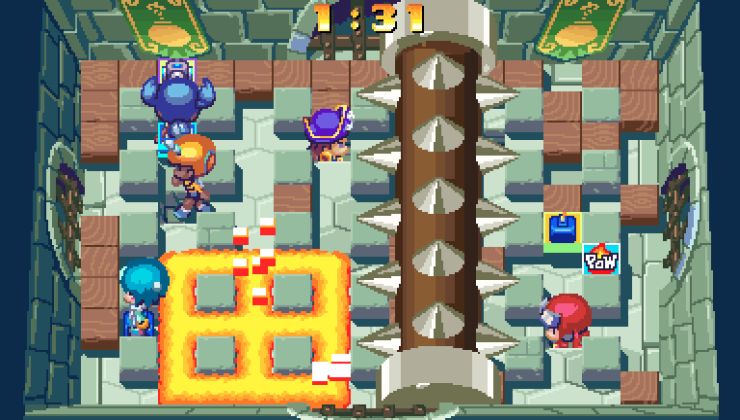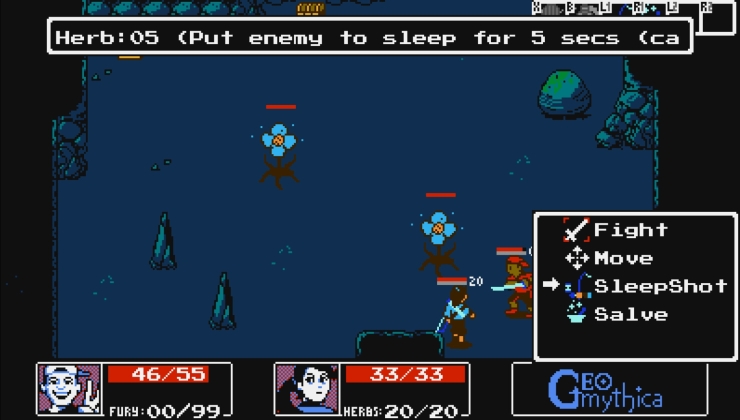In a recent interview with PC Gamer, lead producer Brandon Adler of Obsidian said, "I don't think it was worthwhile developing for Linux. They are a very, very small portion of our active user base - I think around one and a half percent of our users were Linux."
While he did add that is was easy to get the game running on Linux, he cites additional logistical problems like QA and a development team with no previous experience developing for the platform.
These comments stand in slight contrast with statements made in June to Mac Gamer HQ where the interviewer asked "Do Mac and Linux sales justify the extra work involved?" and got back "Yes. Any time you can get the game out on multiple platforms is a huge win for sales because obviously your audience is expanded to include many more people." Although one could argue since the site is a Mac site, the response was equally Mac-slanted, despite the mention of Linux.
As with any such statements, I wonder if the aforementioned added burden can be quantified in time/money spent, and how that compares with the income gained form the 1.5% Linux sales. Surely, it was just a matter of it feeling like a larger burden than it really was due to it being new for the studio?
Smaller studios with reservations about Linux development should really consider outsourcing these efforts, or at least be open to licensed ports. I'm fairly sure the likes of Aspyr/Feral would be more than happy to reap the rewards of managing such ports, especially when the effort is purely QA and support, rather than actually needing to port engines.
Editor Note: If any developer creates a Linux version before Steam Machines are released and expects more than 2% of sales from it, they're doing it wrong. You're doing it for the future and for the long run, not for a quick gain which you won't get right now.
While he did add that is was easy to get the game running on Linux, he cites additional logistical problems like QA and a development team with no previous experience developing for the platform.
These comments stand in slight contrast with statements made in June to Mac Gamer HQ where the interviewer asked "Do Mac and Linux sales justify the extra work involved?" and got back "Yes. Any time you can get the game out on multiple platforms is a huge win for sales because obviously your audience is expanded to include many more people." Although one could argue since the site is a Mac site, the response was equally Mac-slanted, despite the mention of Linux.
As with any such statements, I wonder if the aforementioned added burden can be quantified in time/money spent, and how that compares with the income gained form the 1.5% Linux sales. Surely, it was just a matter of it feeling like a larger burden than it really was due to it being new for the studio?
Smaller studios with reservations about Linux development should really consider outsourcing these efforts, or at least be open to licensed ports. I'm fairly sure the likes of Aspyr/Feral would be more than happy to reap the rewards of managing such ports, especially when the effort is purely QA and support, rather than actually needing to port engines.
Editor Note: If any developer creates a Linux version before Steam Machines are released and expects more than 2% of sales from it, they're doing it wrong. You're doing it for the future and for the long run, not for a quick gain which you won't get right now.
Some you may have missed, popular articles from the last month:
All posts need to follow our rules. For users logged in: please hit the Report Flag icon on any post that breaks the rules or contains illegal / harmful content. Guest readers can email us for any issues.




 How to set, change and reset your SteamOS / Steam Deck desktop sudo password
How to set, change and reset your SteamOS / Steam Deck desktop sudo password How to set up Decky Loader on Steam Deck / SteamOS for easy plugins
How to set up Decky Loader on Steam Deck / SteamOS for easy plugins
I must admit I am not a fan of this argument as well. It's being brought up a lot in online discussions about games and essentially means "Just shut up, for you can't have any clue anyway if you're not working for the industry." It's being used in discussions for no other reason than to discredit the opposing opinion in a debate by questioning their qualification to participate in the debate in the first place (and perhaps their intelligence on top of it). The target of the statement will either appear incompetent or is forced to reveal their real life background, both of which is an undesirable outcome.
It's also exclusively used by people who have no real point to make.
Yep, that's very true. I made the mistake of assuming that people would understand that there are additional overheads, fees, administrative costs, etc. that eat into those kinds of numbers (I specifically avoided taxes since I assume that their country's taxation system and rates are different to my country's). As a general rule of thumb, if you're employing people, you usually budget about double their salary to cover insurance, holiday pay, sick pay, payroll and HR overheads, plant/equipment costs, etc.. I can't see the rough numbers I was highlighting covering much more than a single person's salary for a year at most (that's an example - I'm certain that their Linux related expenses would be spread across multiple people and roles).
Takings are a long way from profit.
As I said in my first post, those numbers are also super vague. It's probably worth taking into account that a significant percentage of Linux users were probably Kickstarter backers (which frames things a little differently, and reduces the per unit cost since a copy of the game was given to $20 pledges and above), and that there have been discounts of up to 33% since the game became purchaseable on Steam.
Pushing uncertainty in the other direction, the quote focuses on active users rather than owners. I can't speak for other people's playing behaviours, but it's not uncommon for me to let a game sit for a few months until I have a good amount of time to dig into it (particularly with RPGs). It's possible that their number of Linux customers is higher than their active Linux playerbase.
My reason for bringing numbers into the discussion was in a hope to highlight where Obsidian are placing the bar for reward justifying effort when it comes to supporting Linux - in the article they said it didn't feel worthwhile. Obviously, they made the decision to support Linux whilst aiming for a bigger margin than what they got.
This is super true. Working with unfamiliar issues and unfamiliar environments is awkward and painful. It slows things down, and as someone else in the thread pointed out, costs extra time in keeping track of upstream bug reports. That said, providing they were taking advantage of Unity's Linux developers (who have always been super enthusiastic about resolving engine issues when I've brought problems to their attention), the experience shouldn't have been significantly troublesome.
You mean people who haven't supported Linux before and may not have known what work would be required? The same people who hadn't made a crowdfunded game before (the dynamics of budgeting and production can shift dramatically when a publisher isn't involved)?
The whole point they were making was their expectations regarding Linux didn't match the outcomes. This suggests to me that they don't know much at all about making/selling games for/to Linux audiences.
Edit: Thanks for sharing the video there, SuperTux. The stuff at 55 minutes seems to suggest that deploying Linux builds was trivial, but buying machines and stuff was what they found hardest. Listening to the voices and tones heard in the video it feels more like the attitude is more about "We should have thought more about what was involved" rather than "We specifically regret doing this." That's a good thing to keep in mind when talking about this issue.
Last edited by Cheeseness on 1 Sep 2015 at 4:53 am UTC
Wow, thanks for adding relevant and sourced information to this discussion :)
So in recalculating the guesstimated profits we can see from Steam Hardware Survey that Mac is about 3% and if Linux is 2% then the total income for developing on Mac & Linux is about 5%.
So there ya go 5% of what was it 42 million dollars is 2.1 million dollars for Mac & Linux support.
Seems like when companies get into a financial pinch they play the blame game really easily, but from the video it just seemed like they were admitting they were extremely unqualified and unskilled in Linux & Mac.
All that should happen by Q1 2016, so I think its worth doing the ground work now on getting stuff running under Linux. I mean no need to dedicated too much resource, just hire a team like EON to get it done (ARMA3 is great under Linux).
Question you gotta ask yourself, did it cost more then 2.1million to make a Linux port? my guess it didn't cost much more then $100k or less.
Last edited by TheRiddick on 1 Sep 2015 at 8:54 am UTC
Some people say that they should have guessed that ~1% of Steam users wouldn't account for loads of sells.
But when Project Eternity, which it was called back then, was funded three years ago - that was before Steam had Linux support even in open beta form - nobody could tell what the Linux user share would be two or three years later. Not them and not us.
I would have guessed it would grow stronger - and I bet many of you did as well.
Last edited by Eike on 1 Sep 2015 at 9:59 am UTC
https://www.reddit.com/r/linux_gaming/comments/3izxkn/obsidian_on_the_linux_version_for_poe_around_one/
https://forums.obsidian.net/topic/81598-devs-thanks-for-the-linux-support/
That's great!
PoE is awesome.
Last edited by Mountain Man on 1 Sep 2015 at 6:22 pm UTC